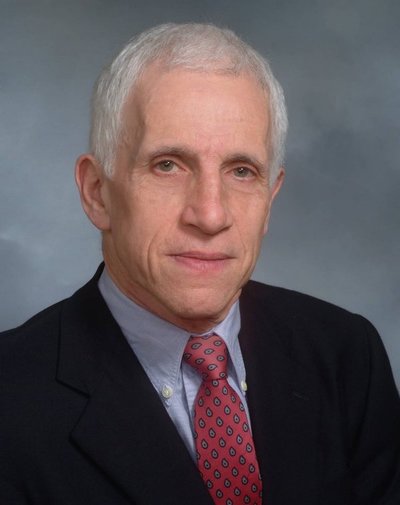April 19, 2007
Stephen Harrison to give Neurath Lecture May 3
The 23rd Annual Hans Neurath Lecture will be given by Stephen C. Harrison, professor of biological chemistry and molecular pharmacology and of pediatrics, Harvard Medical School, and an investigator in the Howard Hughes Medical Institute. Harrison will speak about The Molecular Machinery of Viral Cell Entry on Thursday, May 3, from 4 to 5 p.m. in the Foege Auditorium of the Genome Sciences Building.
The Neurath Lectures are named for Professor Hans Neurath, who founded and chaired the Department of Biochemistry for 25 years from 1950 to 1975, and played a major role in establishing the modern field of protein chemistry. Neurath also founded two major scientific journals: Biochemistry, a publication of the American Chemical Society, which he edited from 1961 to 1991; and Protein Science, a publication of the Protein Society, which he edited from 1991 to 1998. The Neurath Lectures are cosponsored by the Department of Biochemistry and ZymoGenetics, a prominent Seattle biotechnology company focusing on the discovery, development, and commercialization of therapeutic proteins.
Professor Harrison obtained his bachelor’s degree from Harvard in 1963 and his doctorate in biophysics from Harvard in 1968. He has served on the Harvard faculty since 1971. He was chair of the Board of Tutors in Biochemical Sciences, Harvard’s undergraduate program in biochemistry, from 1972 to 1996; and chair of the Department of Biochemistry and Molecular Biology in the Faculty of Arts and Sciences from 1988-1992. For many years, his research laboratory was closely associated with that of the late Don C. Wiley.
Harrison has made many important contributions to structural biology, most notably by determining the structures and mechanisms of viruses and viral proteins, protein/DNA complexes, and protein kinases. He was also the first to explore high-resolution virus crystallography, moving from his early work on tomato bushy stunt virus in 1978 to the study of more complex human pathogens including the capsid of human papillomavirus, the envelope of dengue virus, and several components of HIV. Most recently, he has investigated even more complex molecular assemblies such as clathrin-coated vesicles involved in protein transport and kinetochores involved in chromosome segregation.
Professor Harrison is a member of the U.S. National Academy of Sciences, a fellow of the American Academy of Arts and Sciences, a member of the American Philosophical Society, and a foreign member of the European Molecular Biology Organization. He received the Louisa Gross Horwitz Prize (with Don Wiley and Michael Rossmann) in 1990, the ICN International Prize in Virology in 1998, the Paul Ehrlich and Ludwig Darmstaedter Prize (with Michael Rossmann) in 2001, the Bristol-Myers Squibb Distinguished Achievement Award in Infectious Disease Research in 2005, and the Royal Swedish Academy of Sciences Gregori Aminoff Prize in Crystallography in 2006.



